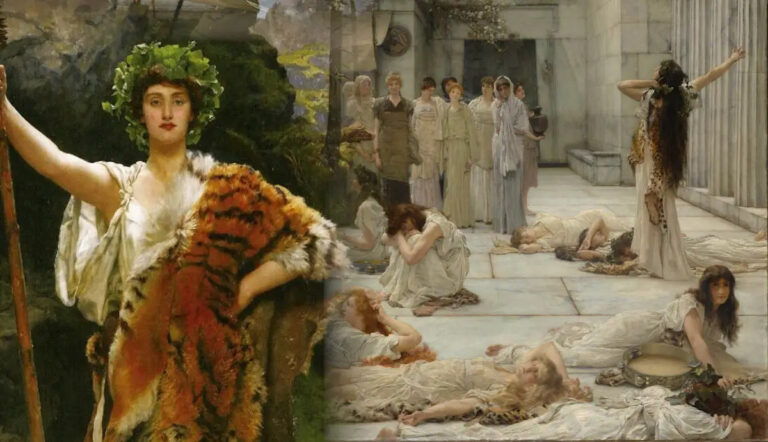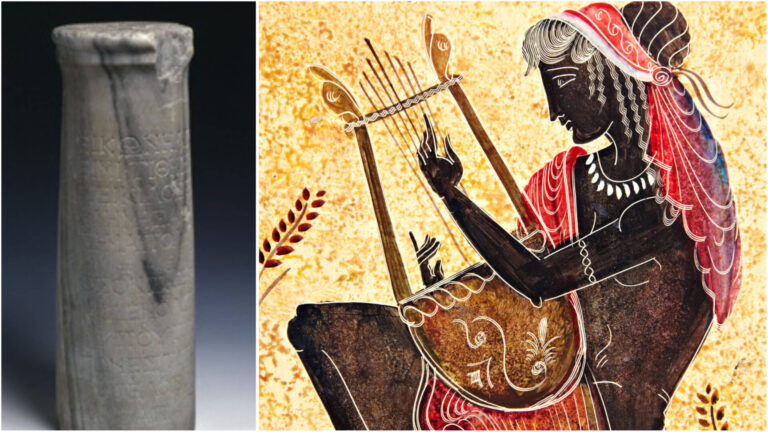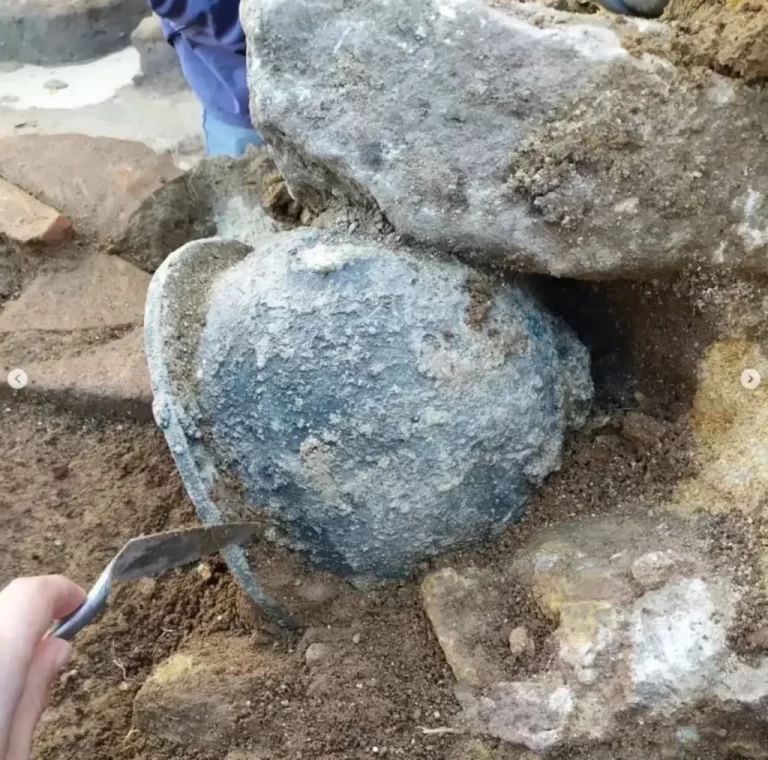In modern English, ‘‘orchestra’’ refers to a group of musicians playing (usually) classical music and, by extension, the part of the venue where the orchestra performs, such as an orchestra pit.
The word has Greek roots and is closely linked to the world of ancient Greek theatre. The orchestra was the ‘‘dancing place’’, where the famous Greek chorus sang and danced during performances of Greek drama.
Scholars studying the ancient Greek theatre are still arguing about the precise shape of the earliest orchestra (circular or rectilinear) and whether the actors interacted with the chorus in this space or performed their roles separately on a raised platform. We do like a good debate!
Not enough evidence has survived from the late sixth and fifth centuries BCE, when Greek drama was first performed in the city of Athens, to be able to definitively answer these questions. Given that was around two and a half millennia ago, we are lucky to even have the information that we do.
Greek drama was made up of three types of plays: tragedies, satyr-dramas (a slapstick style of comedy that acted as a palette cleanser after the tragedies and featured woodland spirits called satyrs –men with the ears and tails of horses), and comedies.
All three genres featured choruses who were often the highlight of the performance. Particular attention was paid to costumes, choreography, and singing. The closest modern equivalent to Greek drama is popular musicals.
Greek drama was state-sponsored, but it was also the popular entertainment of its day. Tragedies had a chorus of 12 members later raised to 15, but satyr plays could have up to 50 members. They were made up of Athenian citizens who trained for six months for a one-off performance in front of a live audience.
Rich citizens acted as sponsors for the chorus, financing their rehearsals and costumes, a form of wealth tax that benefitted the performance arts. What a good idea, maybe we should bring that one back!
If you ever find yourselves in Athens, you can visit the ruins of the Theatre of Dionysus on the foothills of the Acropolis, the public theatre where the annual dramatic festival known as the ‘‘City Dionysia’’ took place (in honour of Dionysus the god of wine and theatre).
The nearby ancient theatre known as the Odeon of Herodes Atticus, still in use today, dates to Roman times. During the Athens Epidaurus Festival in the northern hemisphere summers, you might even get the chance to experience a modern production of an ancient Greek drama for yourselves.
Source: Stuff.co







